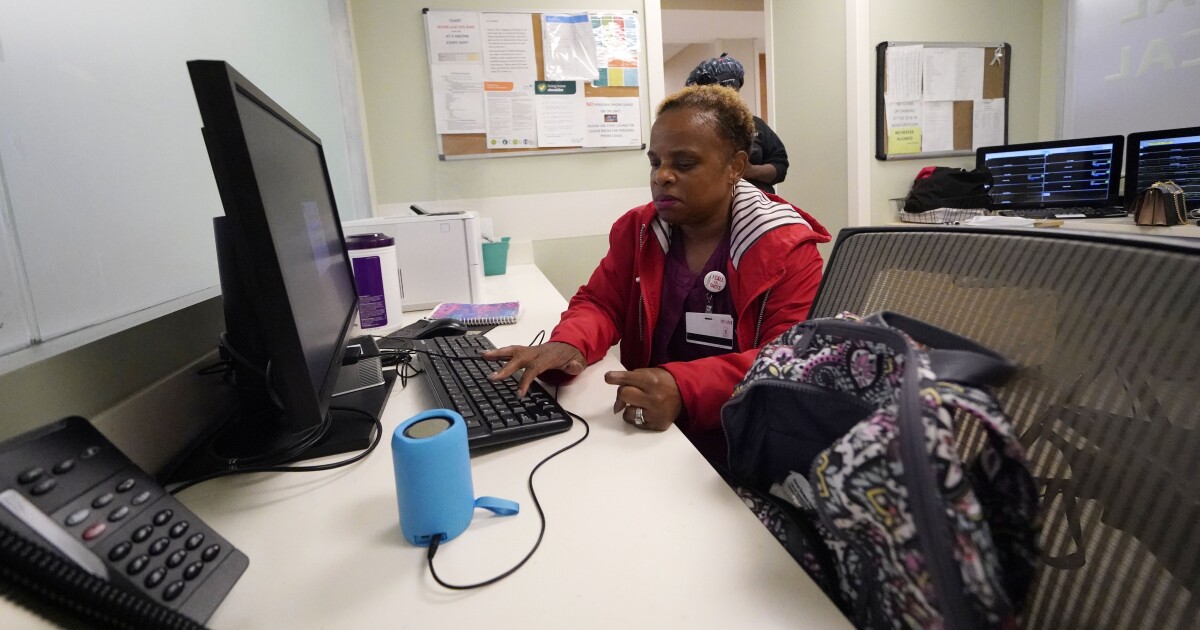Deciding whether to disclose a disability to a prospective or current employer can be difficult.
It’s a question many face: About 1 in 4 Massachusetts adults have a disability, according to 2021 data from the Centers for Disease Control. To help people weigh the pros and cons of disclosing a disability and navigate that process, the Massachusetts Office of Disability Services hosted a public workshop on Tuesday.
“Do you want to disclose your disability publicly? Do you need to disclose your disability for a specific reason? If so, to whom? Does it depend on why you’re disclosing? And finally, if you do decide to disclose your disability, what do you want to say?” said Naomi Goldberg of the Massachusetts Office on Disabilities.
This small state agency provides information and technical guidance on disability rights and architectural/physical accessibility. The workshop is part of a federally funded program. Upcoming information sessions are scheduled for June 12, August 27, and November 13.
Why Disclose?
People with disabilities do not have to disclose their diagnosis to employers, but they do have to disclose any functional limitations relevant to their job.
Positive outcomes of disclosing include your employer thanking you for telling them early on, feeling like you can be your full self at work, and feeling prepared if you need medical accommodations in the future. It can also be a way to explain how your experience is a strength and the way you work. One example would be, “Because of my condition, color coding helps me stay organized.”
Mentioning your disability during the application process can also help explain any gaps in your work history due to illness.
Even if you are then offered another job, the Massachusetts Office of Disability Studies says that your employer is not permitted to disclose to another employer whether you have a disability.
But if you do decide to disclose, you’ll want to consider who you tell and what you say.
“Why you need to be really careful about who you share information with: Coworkers, disabled or not, are under no obligation to keep your information secret,” says Sarah Wiles of the Massachusetts Office on Disabilities. “Your supervisor should hold onto the information if necessary. But just be careful. Protect yourself.”
Why not disclose?
Disclosing a disability can have negative consequences, including stereotyping and possible discrimination.
Workshop participant Dr. Laurent Star Laduazo told GBH News he encountered barriers to disclosure in his previous workplace.
“I disclosed my dyslexia in the interview, I got the job, and then it was a complete nightmare,” she says. “They were like, ‘Don’t send that to Laurent. Don’t let her do the PowerPoint presentations. She’s dyslexic.'”
Raduazo said the “detrimental” experience showed a “huge gap” in employer awareness when it comes to disabilities and demonstrated companies’ unwillingness to invest time and energy in employees.
After four months, Raduazo left the company and took a job with Commonwealth Care Alliance, which she says fully supported her disclosure and provided helpful tools like a screen reader. She hopes the upcoming workshops will help others like her avoid discriminatory employers.
How to answer questions
The workshop provided examples of how to answer inappropriate questions about performance limitations based on disabilities identified during the hiring process.
In a presentation, the Massachusetts Office for Disabilities suggested one way to answer the question: “Your question is answered by me. [state the task and 2 to 3 qualities related to it that make you a good candidate]. ”
Alternatively, you could review the job description and say that you can perform the essential functions of the job.
Wiles said questions from employers during or after disclosure can be “uncomfortable,” so it’s helpful to consider what types of questions are likely to come up.
“These questions can be addressed by playing up the positive aspects and highlighting your strengths. Focus on the underlying concerns about your job performance. And have a professional response ready,” she said.

